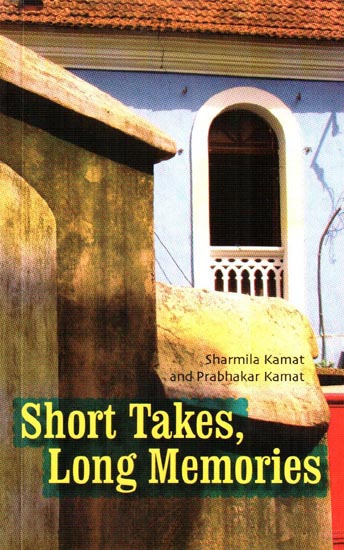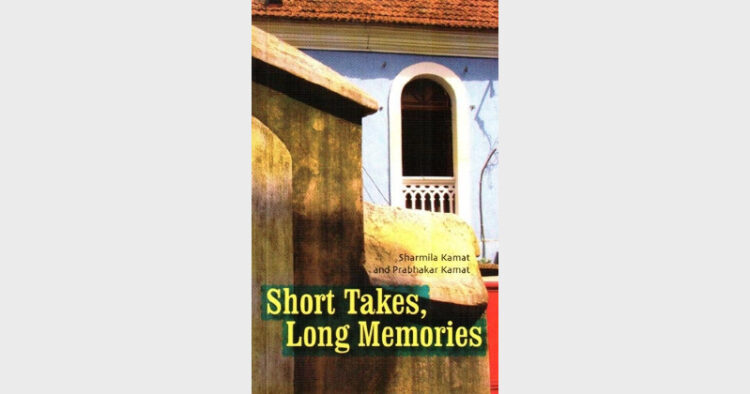Memoirs of a bureaucrat?
By Jayant Patel?
 Short Takes, Long Memories, Sharmila Kamat and Prabhakar Kamat, Rupa & Co., Pp 193 (PB), Rs 195.00?
Short Takes, Long Memories, Sharmila Kamat and Prabhakar Kamat, Rupa & Co., Pp 193 (PB), Rs 195.00?
Based on his reminiscences, an Indian Administrative Officer and diplomat, Prabhakar Kamat, presents a ringside view of an eventful period in Goa’s history – its transition from a Portuguese colony on the Indian subcontinent to becoming an integral part of India. This is the story of a land caught between the irresistible pull of India and the immovable object that was the inflexible colonial regime.
So, through this personal account, we get to witness the state’s makeover from the prized pick of the Portuguese Empire of the East to one of the more vivid elements in that colourful mosaic that constitutes the ‘idea of India’. The story unfolds as the narrator flips through decades of memories, pausing ever so often to freeze-frame an indelible image or replay in slow motion an unforgettable experience. It presents the transition from the eerie quiet of the post-World War period to the liberation of Goa, or to the energy and drive propelling the advent of the new millennium.
The story begins with a snapshot of Goa in the early 1940s when Europe is swamped by aggression while Goa stands placid and stoic. Its population is small and the residents leave their doors and windows ajar throughout the day till darkness sets in. Pedro’s horse carriage is the only mode of transport in Margao. Tea is served in Shivram’s establishment as the waiter would call out, “Ek safed” for a Hindu, ‘Ek fancy” for a Christian and “Ek fulawari” for a Muslim, as he would immediately size up the new arrival. Traders would trade when not resting. The caminhao would be seen lumbering through sleepy villages, stopping to pick up every stray pedestrian in sight.
The author after studying in the local school goes to Lisbon to graduate. With the Suez Canal closed to traffic, his ship circles the Cape of Good Hope, tracing in reverse the route brought into vogue by Vasco da Gama.
As the fifties end, the author returns to Goa and joins the colonial administration. On December 19, 1961, 451 years of foreign rule ends with the liberation of Goa in an action that is “peaceful and quietly over” to quote the then US Ambassador to India, JK Galbraith. He joins the IAS and gets the opportunity to compare and contrast governing styles of pre- and post-liberation Goa. As a Counsellor in the first Indian Embassy to Portugal, following the resumption of diplomatic ties in 1974, he returns to Lisbon that seems both familiar and strange. He revisits his college and other haunts and muses over the years that have changed Goa from the imperialist rule of Portuguese to camaraderie of equals and feels that “the more things change, the more they stay the same!”
(Rupa Publications India Pvt Ltd, 7/16, Ansari Road, Daryaganj, New Delhi – 110002; www.rupapublications.com)















Comments